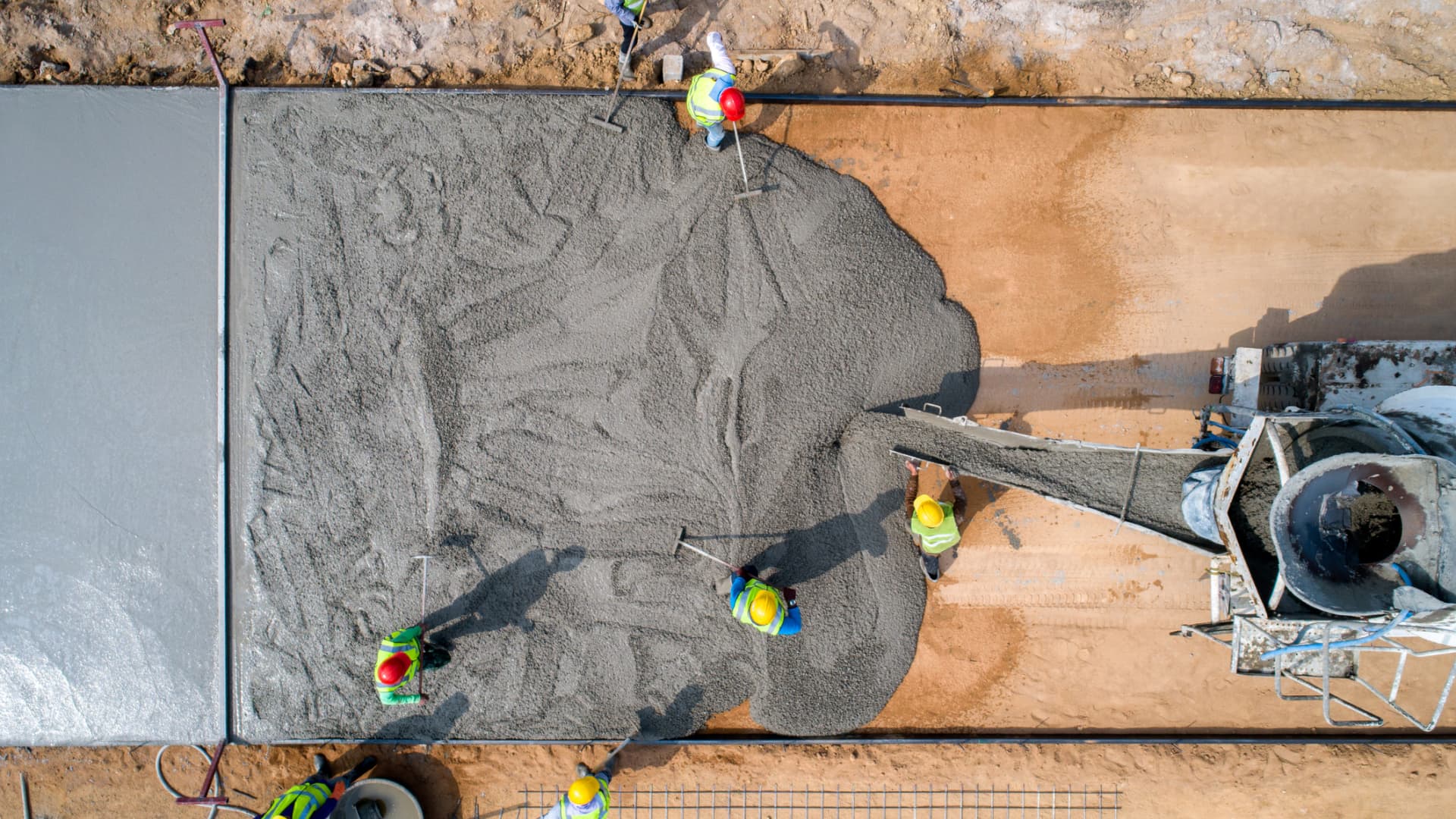Construction workers pouring wet concrete on a road.
Jung Getty
A version of this article first appeared in the CNBC Property Play newsletter with Diana Olick. Property Play covers new and evolving opportunities for the real estate investor, from individuals to venture capitalists, private equity funds, family offices, institutional investors and large public companies. Sign up to receive future editions, straight to your inbox.
Concrete manufacturing, and especially cement production, accounts for 8% of global greenhouse gas emissions, according to the World Economic Forum. That’s about the same as the world’s third- or fourth-largest country’s annual output.
And that’s why large users of concrete, some of the biggest names in real estate, are joining forces to support low-carbon concrete. Amazon, Meta and Prologis are joining other organizations in founding the Sustainable Concrete Buyers Alliance, or SCoBA. The group is led by nonprofits RMI, previously known as the Rocky Mountain Institute, and the Center for Green Market Activation.
“We’re looking to channel their investments into real off-take agreements that will then enable low-carbon cement and concrete producers to invest in decarbonization projects and ultimately accelerate the market,” said Ben Skinner, a manager on the cement and concrete team at RMI.
The idea is to use their collective purchasing power for low-carbon concrete and thereby financially support sustainable concrete production. It could also help to finance capital-intensive decarbonization projects, which improves market conditions for those low-carbon concrete producers to grow their technologies and their businesses.
“Low-carbon cement and concrete are essential to decarbonizing the built environment, and this alliance will help bring next-generation solutions to scale for the benefit of our customers,” said Keara Fanning, director of net zero and sustainability at Prologis, the world’s largest warehouse REIT, or real estate investment trust.
The problem the organizations are trying to tackle is one of scale. Large cement suppliers who do have net zero commitments operate massive plants, and so making the retrofits needed to decarbonize their product is extremely expensive. They need to see legitimate demand in the marketplace before they’re willing to make the investment.
On the other side of the coin, cement buyers who may want to reduce their emissions are having a hard time finding low-carbon cement because the suppliers don’t think there is enough demand for it. SCoBA will connect its members with leading producers of clean cement.
“What we’re doing is bringing together all of those buyers, collectively. They have sufficient buying power to actually move the market, show the suppliers, enable the suppliers to actually invest in these decarbonization technologies,” said Skinner.
They will do this through so-called book-and-claim, which is a more innovative demand-side mechanism that will help expand the market. It’s the same system used in the renewable energy market, where consumers purchase a certificate for the environmental benefits of a sustainable product, but they don’t actually physically get that product itself.
“It doesn’t make logical sense for an ambitious buyer in New York to ship cement that is low-carbon all the way from California for their project. So rather, what we’re enabling would be a transaction in which they are buying an environmental attribute certificate that gives them the rights to that low-carbon product, but the physical product is actually being sourced locally,” Skinner explained.
The goal is to break down that geographical boundary seen in the cement and concrete industry, which has a very long and complex supply chain. It will also help innovators in the space, such as California-based startup Brimstone, which was invited to participate and provide data for the alliance.
“It’s a huge win when some of the biggest companies in the world join together to build a market for sustainable concrete,” said Cody Finke, CEO of Brimstone. “It gives companies like Brimstone a faster path to market — putting our cement into buildings, data centers and infrastructure sooner.”

